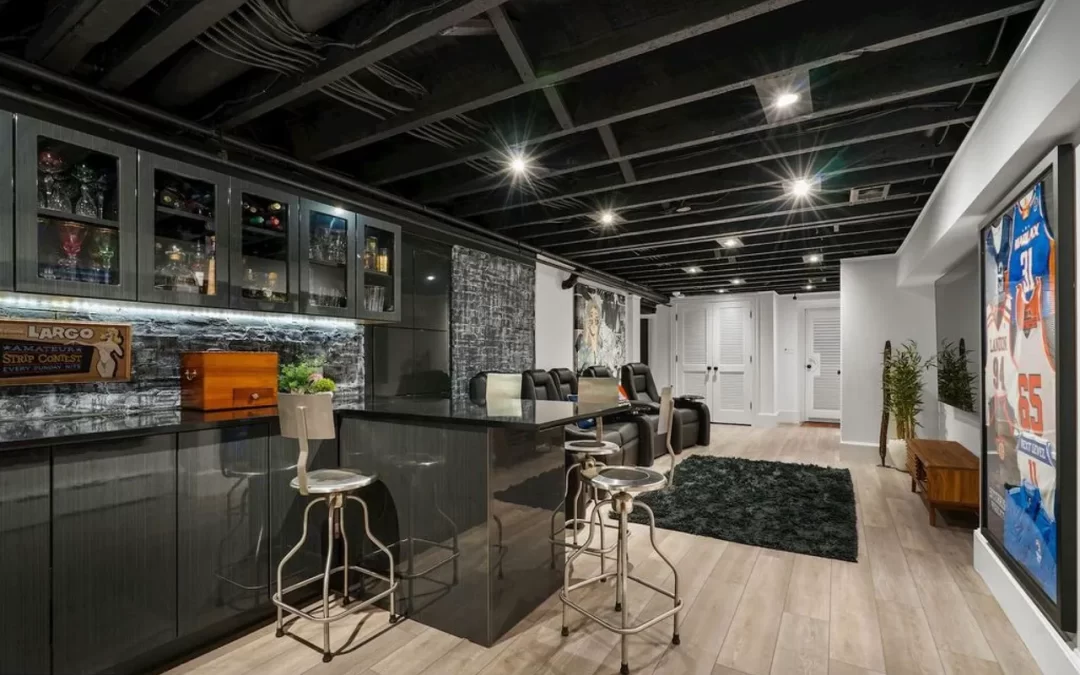Basement Remodeling: Creating Rental Income
In recent years, the concept of basement remodeling has transcended beyond simply adding extra living space or enhancing property value. With the housing market becoming increasingly competitive and the demand for affordable housing on the rise, many homeowners are exploring the idea of transforming their basements into legal apartments. Whether you’re looking to accommodate aging parents, generate rental income, or simply maximize the potential of your home, converting your basement into a legal apartment can be a rewarding endeavor. This guide will walk you through everything you need to know about basement remodeling to create a legal apartment.
Understanding Legal Requirements
Before diving into the remodeling process, it’s crucial to familiarize yourself with the legal requirements for creating a basement apartment in your area. Building codes, zoning regulations, and permit requirements vary by location. Be sure to consult with your local planning department or a professional contractor to ensure compliance with all relevant laws and regulations.
Assessing Feasibility
Not all basements are suitable for conversion into legal apartments. Assess the feasibility of your project before proceeding by considering:
- Ceiling Height: Does the basement meet minimum height requirements?
- Natural Light Availability: Is there enough natural light to make the space livable?
- Ventilation: Are there adequate ventilation systems or windows?
- Utilities Access: Is it easy to connect to existing water, electricity, and HVAC systems?
- Egress Requirements: Does the basement meet escape route requirements for emergencies?
A professional contractor can conduct a thorough evaluation to identify potential challenges and solutions.
Designing Functional Spaces
Designing a legal apartment requires thoughtful planning of space utilization and functionality:
- Layout Options: Consider whether a studio layout or separate living, sleeping, kitchen, and bathroom areas work best for your needs.
- Natural Light: Maximize natural light with large windows or light wells.
- Storage and Ventilation: Optimize storage and ensure proper airflow to maintain a comfortable environment.
Ensuring Safety and Accessibility
Safety should be a top priority when remodeling your basement into a legal apartment. Key considerations include:
- Building Codes: Install egress windows, smoke detectors, and carbon monoxide detectors.
- Fire Safety: Use fire-rated materials and ensure proper exits.
- Accessibility: Incorporate barrier-free designs for individuals with mobility impairments to comply with disability laws.
Installing Separate Utilities
A legal apartment often requires separate utilities, including:
- Electrical Systems: Separate circuits and metering.
- Plumbing: Dedicated water lines for the unit.
- Heating and Cooling: Independent systems for temperature control.
Consult with licensed professionals to ensure compliance with local codes.
Obtaining Necessary Permits
Before starting construction, secure all required permits from your local building department, such as:
- Building permits
- Plumbing permits
- Electrical permits
- Zoning variances (if applicable)
Failing to obtain proper permits can result in costly fines or delays.
Choosing Durable and Low-Maintenance Materials
Select materials that can withstand the unique challenges of below-grade living:
- Flooring: Opt for waterproof options like vinyl or tile.
- Walls: Use mold-resistant drywall and moisture-resistant paint.
- Fixtures: Choose durable, easy-to-maintain finishes to reduce future repair costs.
Creating Separate Entrances
Many jurisdictions require basement apartments to have separate entrances for safety and privacy. Options include:
- Walkout Basements: Ideal for direct outdoor access.
- Window Wells or Stairways: Create a separate entrance that meets safety requirements.
Considering Soundproofing
Soundproofing enhances privacy and comfort for both the basement apartment and the main home. Consider:
- Adding insulation between floors.
- Installing soundproof drywall.
- Using acoustic sealants to minimize sound transmission.
Seeking Professional Guidance
Converting your basement into a legal apartment is a complex process that benefits from expert input. Engage professionals such as:
- Contractors: Ensure compliance with building codes and quality construction.
- Architects: Design functional and aesthetically pleasing layouts.
- Designers: Optimize storage and living spaces.
Converting your basement into a legal apartment is a rewarding investment that adds value, flexibility, and functionality to your home. By understanding the legal requirements, assessing feasibility, designing functional spaces, ensuring safety and accessibility, obtaining necessary permits, choosing durable materials, creating separate entrances, considering soundproofing, and seeking professional guidance, you can successfully transform your basement into a legal apartment. With careful planning and execution, your remodel can provide a comfortable and legal living space for yourself, your family, or potential tenants for years to come.

